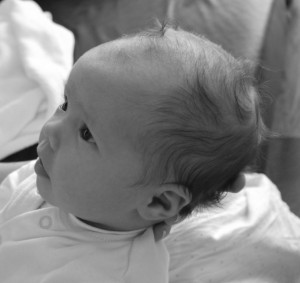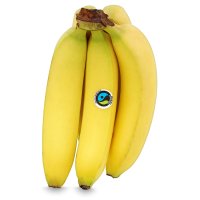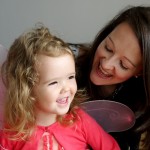 Category: Best For Baby
Category: Best For Baby
Breastfeeding and Calories
One of the great advantages of breastfeeding is that it burns calories.Breastfeeding Mums will burn up to 500 calories a day just from providing their babies with the best start in life.
Breastfeeding and eating a diet rich in nutritious foods have been the best things for my post pregnancy weight loss.
When you’re breastfeeding you spend a lot of time sitting, hopefully with your feet up, so it’s important to get outside everyday for your mental health and enjoy a leisurely walk with baby.
I was quite often ravenous when I was breastfeeding. I breastfed on demand so it was essential I ate small snacks and meals throughout the day to keep my energy levels up, to ensure optimal amounts of breast milk production and to maintain my blood sugar levels.
Because you’re burning so many calories when you breastfeed you’ll need to consume around 300 to 500 more calories per day when you’re breastfeeding to ensure proper milk production and to keep up with the demands of your body.
Whatever you eat as a breastfeeding Mum will pass directly into your breast milk and into baby who consumes your breast milk so avoiding additives, contaminants and highly processed foods is essential.
For the health of Mum and Baby, I always recommend you eat organic foods.
Breastfeeding Mums should eat healthy and nutritious foods that will provide you with sustained energy release to keep you going and regulate your blood sugar levels. This also helps to maintain your mood as blood sugar spikes and lows can leave you feeling up and down.
Some of my favourite foods to eat for energy when breastfeeding:
- Organic Semi Wholewheat Pasta – takes a few minutes to cook and makes a healthy and quick meal. Grate a little cheese on top or add an Organic Tomato Pasta Sauce.
- Organic Bananas – rich in potassium and low in sodium, a quick and healthy snack with calming properties.
- Organic Apples make a perfect snack. Highly nutritious and a good source of vitamins A and B1 as well as being rich in minerals. High in fibre to help cleanse your system and to keep you regular. It’s best to eat only Organic Apples here’s why.
- Organic Free Range Eggs Scrambled on toasted Rye Bread – a quick and healthy way to eat protein. Eggs are low in fat and provide balanced nutrition, being rich in B vitamins and many minerals.
What are your favourite foods for energy when breastfeeding?
Benefits of Breastfeeding
 No doubt you will have heard Breast is Best.
No doubt you will have heard Breast is Best.
Despite this there’s still a lot of debate when it comes to feeding and what’s best for your baby.
Exclusive breastfeeding, mixed feeding with breast milk and formula or exclusive formula feeding?
The World Health Organisation (WHO) published a statement in January 2011 indicating findings show exclusive breastfeeding up to the age of 6 months is best for babies, as it helps to achieve optimal growth, development and health.
This statement on breastfeeding by the WHO is for all babies, not just babies in developing countries.
My thoughts are that if you can breastfeed and if you want to breastfeed then it’s best for Mum and baby to breastfeed. Nutritionally, emotionally and physiologically.
Here are just some of the Benefits of Breastfeeding
- The fat in breast milk is more digestible for babies, compared with cow’s milk, so there’s a greater absorption of fat-soluble vitamins into baby’s bloodstream.
- The hormones in breast milk promote baby’s growth.
- Breastfeeding will give your baby the best start and allow them to grow and develop at optimal levels.
- Breastfeeding reduces the risk of SIDS (Sudden Infant Death Syndrome).
- Breastfeeding decreases the risk of your baby developing infections as Mum’s breast milk provides antibodies for her baby.
- Breastfeeding can help to reduce Mum’s risk of developing breast cancer.
- Breastfeeding is the best way to burn calories, and you get to sit down and put your feet up at the same time!
- Breastfeeding gives Mum and baby regular skin-to-skin contact which nurtures bonding and provides great emotional benefits.
- There’s a reduced risk of breastfed babies developing childhood diabetes.
- Breast milk provides baby with protection against allergies, eczema and asthma.
What are your thoughts on the benefits of breastfeeding?
Pregnancy Diet
As a mum-to-be you’ll probably have many questions about your pregnancy diet.
- What do I eat during pregnancy?
- What shouldn’t I eat during pregnancy?
- How many extra calories do I need when I’m pregnant?
Pregnancy affects every woman differently.
I had bad morning sickness for the first 16 weeks of my pregnancy and then miraculously it disappeared, only to come back during the last 6 weeks of my pregnancy.
It’s important to eat foods that will give you and your baby as many nutrients as possible when you’re pregnant, and always remember your baby eats what you eat.
As a Nutritional Advisor and Mum I always make the following recommendations for pregnant women.
What to Eat During Pregnancy
- Eat a variety of wholefoods everyday – choose from wholegrain rice, quinoa, wholemeal pasta, pulses, rye and wholemeal breads.
- Eat five plus servings of fruit and vegetables everyday, if fresh wash them well – go for brightly coloured fruits and vegetables as these contain more nutrients and antioxidants. Go organic if you can here’s why.
- Eat two portions of fish a week, one being oily fish such as mackerel or sardines.
- Eat cooked rather than raw shellfish.
- Eat organic produce as often as you can – you’ll be avoiding the pesticides that are sprayed on fruit and veg, and the antibiotics and hormones that are given to animals.
- Make sure any egg, cheese, milk, yoghurt and fruit juice products you eat are pasteurised.
- Make sure all meat and poultry is cooked thoroughly.
What Not to Eat During Pregnancy
- Cut down your intake of caffeine with no more than two cups of coffee per day.
- Avoid eating Shark, Marlin, King Mackerel, Tilefish and Swordfish. Limit Tuna Steaks to one a week (about 140g cooked or 170g raw each) and limit canned Tuna to no more than four portions of medium-sized cans (140g drained weight) per week. This is due to the higher than average levels of mercury found in these fish which can damage a baby’s developing nervous system.
- Make sure all eggs are thoroughly cooked until the whites and yolks are solid – to prevent the risk of food poisoning by salmonella bacteria.
- Avoid eating any type of pate, including vegetable pate, as these can contain listeria.
- Avoid eating liver or liver products as these contain high levels of Vitamin A which could harm your baby.
- Avoid eating mould ripened soft cheese, such as brie and Camembert as well as blue-veined varieties, such as Stilton and Danish Blue – this is due to the risk of listeria infection.
- Try to avoid junk food, it provides you and your baby with no nutrients and is likely to add to your pregnancy weight gain.
How many extra calories do I need to eat when pregnant?
It’s probably not until the last 3 months of pregnancy that you’ll need to up your intake of calories.
During months 6 to 9 of pregnancy your baby will be getting larger and growing faster as they put on layers of fat in preparation for their arrival. At this time you’ll probably need to increase your calorie intake per day by up to 200 calories, which is roughly equivalent to two slices of wholemeal toast with butter.
That said, I know when I was pregnant that two extra slices of toast and butter a day were not enough to ward off those hunger pangs in the final months of pregnancy.
Listen to your body and be sensible. Eat healthy snacks if you’re hungry between meals and if you suffer from morning sickness it may help to eat several small meals throughout the day rather than three larger meals.
You can find out more about a healthy Pregnancy Diet with NHS Pregnancy and Baby.






